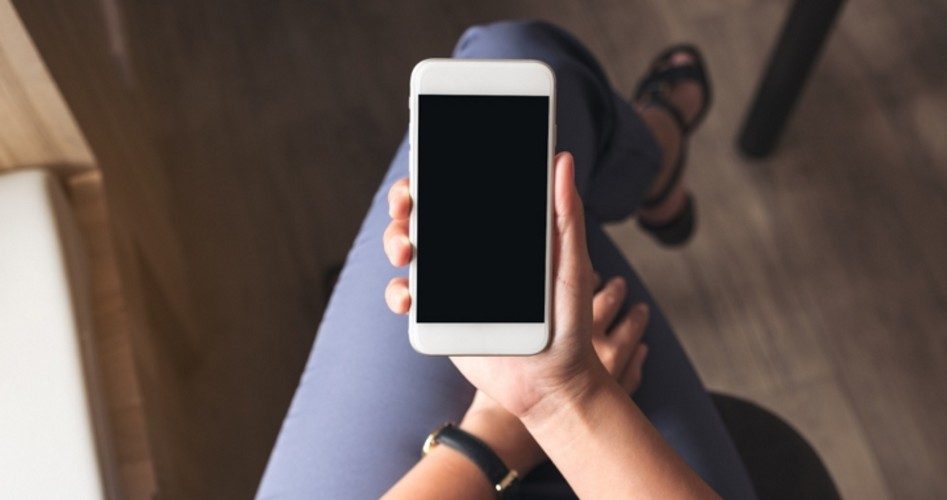
Brushing aside multiple security concerns, West Virginia has opted to allow the use of mobile phones — for the first time in U.S. history — in 24 counties in the November elections.
The reason given for taking this controversial step is that it will be more convenient for members of the U.S. military deployed outside of the country to vote. Secretary of State Mac Warner, a West Point graduate and retired 23-year veteran of the U.S. Army, issued a press release last week explaining the new policy. In the release, Warner, who was a lieutenant colonel at the time of his retirement, argued that he experienced “firsthand how difficult it is for uniformed service members to participate in elections using traditional absentee paper ballots.”
According to the U.S. Elections Assistance Commission, nearly 300,000 overseas voters (this would include others besides members of the U.S. military) requested ballots in the 2016 elections, but were not able to return them to their home counties.
“I knew that we could do better to provide West Virginia military personnel all over the world with the opportunity to vote. As secretary of state, I was now in a position to do something about that,” Warner said. “So, I put together a team of staff members from our Elections and Technology Divisions to explore how we could address that challenge.”
But when the secretary of state’s office investigated ways to improve the situation, they discovered that most electronic ballot delivery technology required access to a desktop computer, printer and scanner. This is obviously often difficult for military personnel in combat zones, or those engaged in covert operations. Tusk Montgomery Philanthropies offered to fund a project to enhance ballot accessibility to uniformed service members and other citizens living out of the country. Finally, Tusk connected West Virginia with a Boston company, Voatz.
According to Warner’s press release, “Voatz has developed a secure mobile voting application that allows voters to receive, vote, and return their ballots electronically.” This would be the first time in U.S. history that a mobile voting application has been used, and also the first use of “blockchain technology” in a federal election. Blockchain technology stores electronically submitted ballots until election night.
“We are all cautiously optimistic that mobile voting for military personnel will allow them to vote securely no matter where they may be deployed,” Warner said.
Actually, more emphasis should be placed on the cautiously, rather than on optimistic. The security of election procedures to choose members of Congress, as well as several other state offices should not be left to optimism, but rather should be based on cold scientific reality.
Computer experts have warned for nearly 20 years that Internet voting is fraught with potential fraud and cyber-attacks. Not only could this voting method result in alterations in the outcome of the actual election totals, and even other problems such as vote buying and intimidation, the most serious concern is that such alterations in the election outcome might never even be detected.
With all the recent concern — real or contrived — over interference in American elections by foreign actors, such as the Russians or the Chinese, it should be a no-brainer that we do not turn over our electoral process over to any system that drastically increases the chances of massive election fraud.
Beginning in California in 2000, several evaluations of Internet voting have been conducted. Several experts in Silicon Valley participated in that original evaluation. Their report concluded that Internet voting is “an election system that uses electronic ballots that would allow voters to transmit their voted ballot to election officials over the Internet,” and concluded that potential “criminal electronic attacks on computer software, such as destructive ‘viruses’ or ‘Trojan horse’ software, create a serious threat to Internet voting.”
Those conclusions have only been confirmed by several other studies over the years, including one by the National Science Foundation which said, “Internet-based voter registration poses significant risk to the integrity of the voting process, and should not be implemented for the foreseeable future.”
What are some of the ways in which domestic or foreign hackers could alter the results of an American election? Votes can be changed, fabricated, or deleted — and could go undetected.
In 2010, the District of Columbia set up a mock election and publicly challenged hackers to test the system. They did, and a professor and students at the University of Michigan conducted a class project and changed the results, changing every vote. Even worse, elections officials were unaware of the hacking until the Michigan hackers explained to them how it was done.
What is being done in West Virginia, intentionally or unintentionally, is using understandable American sympathy to soldiers and sailors in their difficulties in participating in the electoral process to advance the idea of extensive use of Internet voting. Once the precedent is established, by allowing overseas military personnel to “phone in” their votes, the argument will be made that this is how all American elections should be conducted.
Once that is done, we will be left to wonder whether an election result for city council, for the state legislature, or even a presidential election was altered by hackers.
As Hans von Spakovsky wrote for the Heritage Foundation, “Internet voting is definitely a technology whose time has not come — and may never come.”
Photo: Farknot_Architect/iStock/Getty Images Plus

